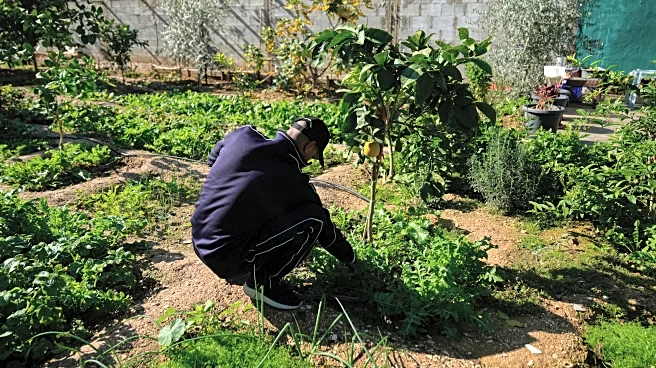What is the story about?
What's Happening?
Researchers have developed a new method for selectively precipitating rare earth elements using a molecule called DO3A. This approach addresses the challenge of isolating lanthanides, which are crucial for applications in catalysis, electronics, and renewable energy. The study found that modifying DO3A with a benzene ring allows for selective precipitation of certain lanthanides, potentially offering a more environmentally friendly alternative to current extraction practices.
Why It's Important?
Rare earth elements are vital for numerous high-tech applications, but their extraction often involves environmentally harmful processes. The new method could lead to more sustainable practices in the rare earth industry, reducing reliance on destructive refining techniques. This advancement may benefit sectors such as renewable energy and electronics, which depend on these materials for manufacturing strong permanent magnets and other components.
What's Next?
Further research may explore the potential for modifying the DO3A molecule to selectively precipitate other rare earth elements. This could enhance the efficiency and sustainability of rare earth extraction, potentially transforming industry practices. The study's findings may also prompt investigations into other molecular engineering techniques for isolating critical materials, contributing to the development of greener technologies.














